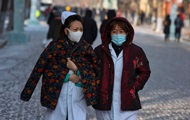The Dutch Cancer Society is donating 5 million euros for research into rare cancers. The amount is intended to improve diagnosis and treatment for the more than 20,000 patients per year in whom a rare tumor is discovered.
“It is extremely important to make a difference for this group of patients,” says Johan van de Gronden, director of the Dutch Cancer Society. “We see that survival rates for common cancers have risen sharply over the years, but patients with rare cancers benefit a lot less from the latest developments. “
Lower survival rate
A cancer is rare if it is found in less than 6 in 100,000 Dutch people per year. That doesn’t seem like much, but there are many different rare cancers. In total, this concerns more than 20,000 patients per year. Their survival rate is much lower than that of people with a more common type of cancer, such as breast or colon cancer.
Long way to correct diagnosis
A rare form of cancer was also discovered in 24-year-old Dennis Warmerdam a few years ago, but it took a lot of effort to get the correct diagnosis. Dennis played hockey at a high level at the time and was even captain of the Dutch Juniors. In 2017, he suddenly suffered from his right arm. The pain got worse and Dennis went under the knife twice. But it was only after the second operation that it became clear that a tumor was growing in his arm.
It was a rare form of cancer, a so-called soft tissue tumor. The tumor grew fast and playing hockey at the top level was no longer an option. The seriously ill Dennis received chemotherapy, but unfortunately it was not effective enough. Right arm amputation seemed the only way to save his life.
–
Additional Challenges
The knowledge about rare tumors is currently still too widely spread across different hospitals, says Van De Gronden: “Patients and doctors therefore face additional challenges: the diagnosis takes longer, there are fewer treatment options and often less information about the disease is available. ” With the financial boost, KWF Kankerbestrijd hopes that researchers and practitioners will better combine knowledge and strengths and thus clearly improve the prospects for this large patient group.
Relatively little is known about soft tissue tumors, but Dennis went looking for alternatives to prevent amputation of his right arm. He eventually ended up in the AMC in Amsterdam, where doctors were able to save his arm thanks to a complicated experimental operation. A large piece of tissue from Dennis’s arm was removed and replaced with tissue and skin from his thigh.
Also read
‘Wonder that I can play hockey again’
Dennis is now doing so well that he even plays hockey again at the highest level. “It’s really a miracle that this is now possible again. The doctors said they just did their job, but for me this is such a huge gift.”
Dennis is now active as an ambassador for the Dutch Cancer Society. He is very pleased with the financial support for research into rare cancers: “There is often very little information available for patients, medical knowledge of rare tumors must be shared much more widely, so that faster and better treatments can be developed, so that eventually more people will be cured of cancer. All cancers, including the rare ones. “


